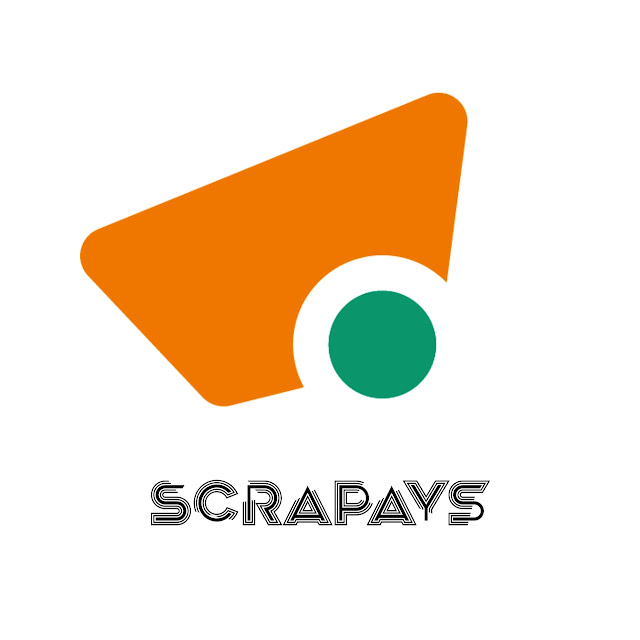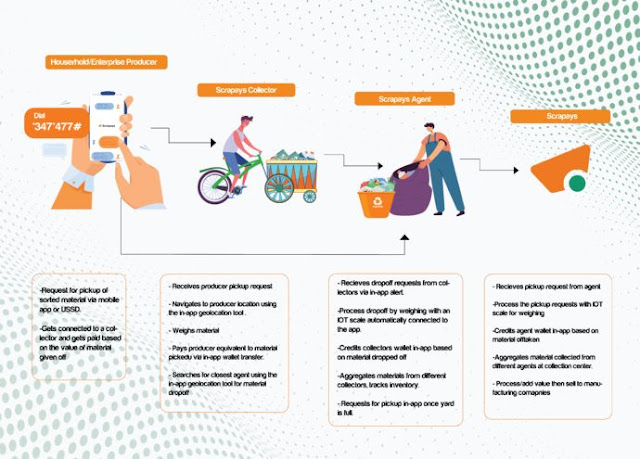 |
| Scrapays Technologies Ltd |
In the course of recent years, we’ve seen countries and companies pay citizens for gathering reusable waste. Some of these junk for-cash companies have arisen in Nigeria, hoping to cut down the seemingly unending refuse problems by paying Nigerians while providing recycling firms with the much-required materials. An example of such platforms is a company called Scrapays Technologies Ltd, established by Boluwatife Arewa, Tope Sulaimon, and Olumide Ogunleye, graduates of the Federal University of Technology, Akure.
Scrapays is a decentralized entrant company, aimed at rewarding citizens who properly collate their recyclable waste, reducing environmental pollution, and providing recycling industries with raw materials. Its decentralized business model caters for two classes of clients – garbage producers and recyclers.
Garbage producers include people, SMEs, and ventures, virtually everyone that generate recyclable refuse day by day while amassing them over a while before asking for pickup, which can be done with the USSD shortcode (*347*477#), the Scrapays website, and their mobile app
When the pick-up requests are made, the ready-to-go collectors move into action to answer them. These collectors are geared up with customized carts (which they get upon registration and pay for over nine months) as well as portable IoT-enabled scales. They also get access to an app, so that when the waste producers make a pick-up request, the nearest collector sees and accepts it on the app. On collection, the recyclable refuse is sorted and weighed using the IoT-enabled scales. These scales show the weight of the recyclables (in kilogram) and their monetary value on the mobile app.
After collection, the waste needs to be stored. So at this point, some special agents give transitory storerooms (AirBnBs for recyclables) to recyclable materials recovered by the collectors. Scrapays permits existing or new firms and persons to be recruited as agents and bring in cash from their unfilled spaces for each kilogram of the scrap put in them. From the agents’ offices, the collected recyclables are taken to Central Processing Areas and are auctioned to organizations (recyclers) that convert the material into completed items.
 |
| Scrapays' decentralized workflow | Image: techcabal.com |
The website likewise has a rundown highlight, which fills in as an online commercial center for modern posting and trade of all recyclables and old hardware, vehicles, trucks, and gear.
Scrapays owners have noted that they do not intend to compete with the unorthodox scavengers and collectors who explore virtually everywhere in the country, but rather want to make it easy and risk-free for them. This is true, as it has been observed that most of Scrapays’ collectors are the unorthodox ones.
Nigeria’s populace is assessed to multiply twofold by 2050; which will certainly result in the production of more waste and more items for recycling. As Scrapays’ collectors peruse through broadways, as well as nook and crannies satisfying pick-up demands, the startup’s techy and efficient arrangement is tending to wellbeing, accommodation, and metropolitan flexibility issues in Africa’s biggest country, each city in turn.
Comprehensive reference here.
